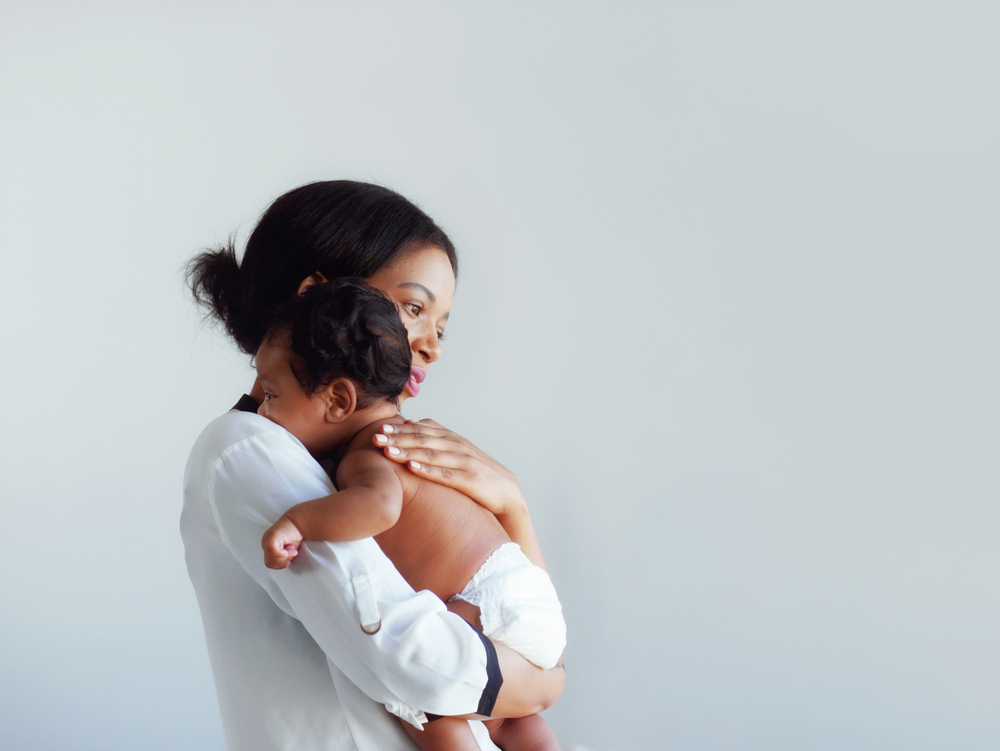They don’t call it “labor” for nothing. Maybe the word should be applied not only to delivering a baby, but to the entire year-or-two of enduring pregnancy’s physical challenges and then mothering an infant through the sleeping-irregularly, always-hungry, crying-at-all-hours period. For the brand-new mother, add in post-delivery hormonal changes and the natural “letdown” following any great goal finally achieved, and it’s no wonder that the first few days of motherhood are often full of mood swings and emotional outbursts.
The worst of it usually passes quickly; but not all moms are so fortunate. Occasionally, the aftereffects of giving birth include serious mental illness.
Symptoms of Postpartum Depression
About 13 percent of new mothers develop postpartum depression—a form of clinical depression triggered by a rapid drop in hormones after giving birth.
Ordinary “baby blues” rarely last beyond two weeks. Postpartum depression is a likely cause if the following symptoms persist for a longer period.
- Unusual difficulty concentrating
- Losing interest in everything—including the much-anticipated baby
- Feeling little sense of bonding with the baby
- Not wanting to see or talk to anybody
- Feeling like a “bad mother” for no logical reason
- Blaming oneself for everything that seems imperfect
- Constantly feeling “down” and hopeless
- Bouts of uncontrollable crying
- Worrying that “something” terrible will happen
- Panic attacks
- Irrational anger at the baby or others
- Thoughts of hurting oneself
If not diagnosed and treated, postpartum depression can lead to longer-term depression, or even to child abuse or suicide.
Symptoms of Postpartum Psychosis
If there’s anything worse than postpartum depression, it’s the lesser-known postpartum psychosis, which is related to bipolar disorder and affects perhaps 1 in 500 new mothers. This illness is characterized by delusions, hallucinations, and paranoia. Other symptoms include:
- Failure (or inability) to care for oneself or the baby, or to tend to other basic responsibilities
- Irrational fears for, or even of, the baby
- Violent mood swings
- Unusual restlessness
- Staring into space or otherwise seeming disoriented
- Behaving erratically and out of character
- Threats of suicide, or of hurting the baby or someone else
Without prompt diagnosis and treatment, the situation may turn extremely dangerous.
Highest-Risk Demographics
You may be at extra risk for postpartum-related mental illness if:
- You lack a human support network
- You’re out of work or in a lower income bracket
- You have greater-than-average stress in your life for any reason
- You or others in your family have any history of mental illness
- You aren’t getting enough rest
- You’re a younger-than-average mother
- You had mental health issues after delivering a previous baby
- Your baby was delivered by Caesarean section
- You delivered multiples (twins, triplets, etc.)
What to Do About Postpartum Psychosis or Depression
If you or your partner (or another close loved one) show signs of postpartum psychosis or depression, consult a doctor immediately. Don’t just wait and hope it will pass: if it gets worse instead, the consequences could be tragic.
Here’s what else you can do to help prevent or recover from postpartum mental illness:
- If you fall into a high-risk group, plan special precautions (including extra self-care and not fretting over what might happen) starting early in your pregnancy. Schedule an appointment with your obstetrician to discuss specific risks and recommendations.
- Remind yourself that every new mother has struggles, and there’s no reason you should be 100 percent perfect.
- Accept help caring for the baby, and connect with other mothers for support.
- If you do have postpartum mental illness, your doctor may recommend medication. Ask about any risks related to your baby’s absorbing medication through your breast milk.
- While being treated for postpartum psychosis or depression, keep in close contact with your baby as much as possible: lack of bonding opportunities could make depression worse or longer-lasting, and could eventually lead to additional mental health issues for both you and your child.
- If your doctor recommends hospital admission, maintaining the mother–baby bond requires additional effort: postnatal psychiatric units that allow daily contact are few and far between. Get someone to advocate for you in considering all possible options. And find a baby caretaker, preferably a close family member, who will also stay in long-term relationship with you and the child.
Above all else, don’t give up hope for your and your baby’s future. Proper treatment, positive thinking, and mother love are a match for nearly any postpartum challenge.
Help for Postpartum Mental Health Issues
Pine Grove provides specialized mental health care, including peer support groups, in all stages of pregnancy and new motherhood. If you or a loved one struggle with postpartum psychosis or depression, contact us to schedule an assessment.

